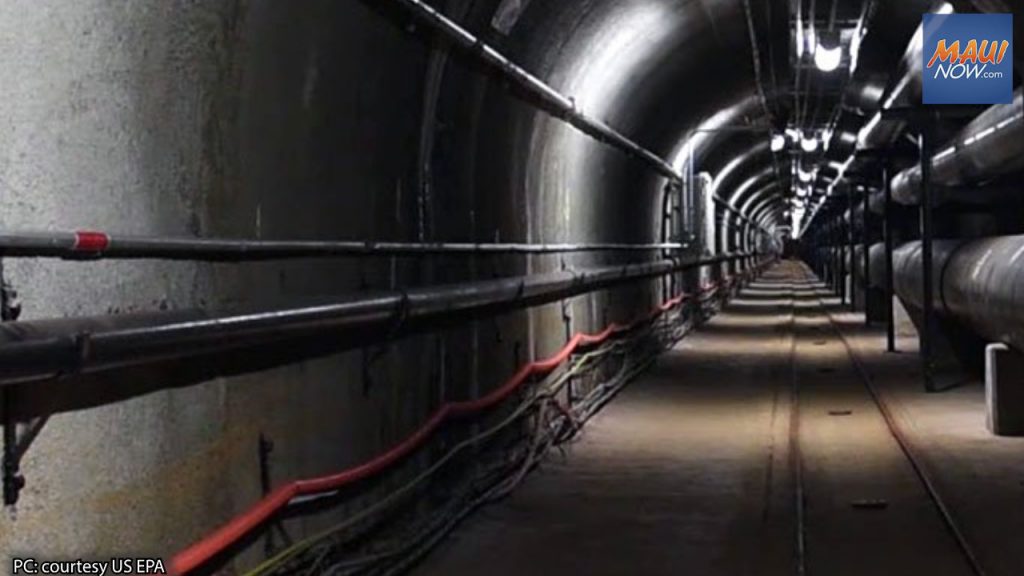OHA Board Chair Carmen “Hulu” Lindsey Releases Statement On Red Hill Shut Down

Office of Hawaiian Affairs Board Chair, Carmen “Hulu” Lindsey released the following statement following the governor’s order calling for the shutdown of the Navy’s Red Hill fuel tanks. The statement was released on Dec. 7, 2021.
“The Office of Hawaiian Affairs strongly supports Gov. Ige and the Hawaiʻi congressional delegation’s call to shut down the Navy’s Red Hill fuel tanks before permanent, irreparable damage is done to our aquifer and Oʻahu’s main source of clean drinking water is lost forever.
A complete emergency shut down and full assessment of the Red Hill facility is necessary to protect our precious water resources. Immediate measures should be taken to treat contaminated drinking water in the Red Hill well shaft, and fuel should be swiftly and safely removed from all 20 underground storage tanks.
ARTICLE CONTINUES BELOW ADARTICLE CONTINUES BELOW ADThis is a long-standing issue. The tanks were built in the 1940s and were not made to last forever. Over the years, more than 180,000 gallons of fuel have leaked from the tanks and tests show they are corroding underground. A mere 100 feet below the leaking fuel tanks is the Southern Oʻahu Basal Aquifer – the primary source of drinking water for Oʻahu. This aquifer alone provides drinking water for over 400,000 Hawaiʻi residents and visitors from Hālawa to Hawaiʻi Kai.
The Navy’s abysmal failure to address this major, ongoing environmental issue has already drastically impacted military families affected by the latest Red Hill fuel leak. The wellbeing of all Hawaiʻi residents that depend on the Southern Oʻahu aquifer are being severely jeopardized by the Navy’s egregious negligence. The Navy can no longer brush aside public concerns. Urgent and immediate action must be taken to protect our water resources.
The U.S. Military has a long history of poor stewardship of Hawaiʻi’s natural and cultural resources. At places like Kahoʻolawe, Pōhakuloa, Mākua and Kahuku, time after time the people of Hawaiʻi have been left to clean up after the military ravages our sacred lands – from unexploded ordnance and toxic waste to the loss of cultural and historic sites and endangered native species – without even appropriating resources to finance these efforts. In the case of Kahoʻolawe, the island’s cap rock was destroyed by years of relentless bombing by the Navy so there can never be a freshwater source for the island.
ARTICLE CONTINUES BELOW ADTrust is earned and the Navy has not demonstrated that it can be entrusted with the stewardship of our most precious resource, clean water. Indeed, the Navy’s lack of transparency with an issue this critical to Hawaiʻi nei has simply been shocking.
As the events of the Red Hill fuel leaks unfold, OHA’s Board of Trustees is concurrently reviewing the published Hawaiʻi Military Land Use Master Plan, including proposed military expansions, for alignment and accountability to overall land, water and cultural stewardship pono practices.
Immediate action is needed to protect our water resources. OHA continues to support the Sierra Club of Hawaiʻi’s call to find a long-term solution to this critical issue.
ARTICLE CONTINUES BELOW ADIt is a fundamental truth that wai gives life ma ka honua nei and we uphold the principle of water as a public trust. We recognize that wai is central to the Native Hawaiian worldview and who we are as a people, connecting past, present and future generations. We acknowledge the vital importance of wai to all people, yet also its unique significance to Native Hawaiians.
Our kuleana as a leader is to help protect Hawaiʻi’s natural and cultural resources, redress ongoing injustices and promote pono stewardship practices. It is OHA policy to advocate for appropriate, responsible and just land and water stewardship practices and values throughout Hawaiʻi, empowering OHA and communities to carry the shared responsibility of protecting and ensuring the proper management of our natural and cultural resources.”










